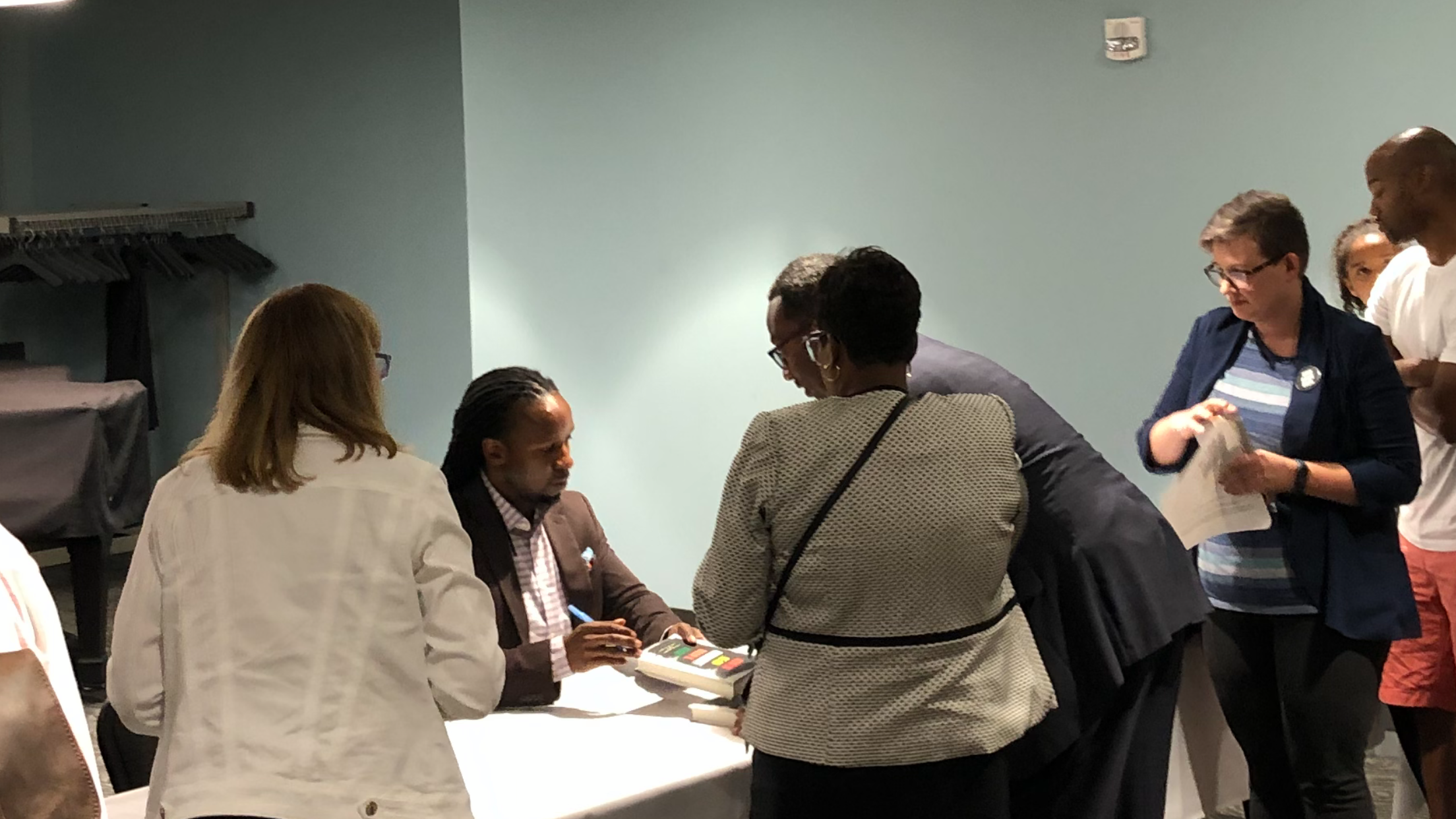Blogs

Engaging in Dialogue about Racism/Antiracism at UD
By Jason Combs
This week, Dr. Ibram X. Kendi, a professor of History and International Relations and the founding director of The Antiracist Research and Policy Center at American University, visited the University of Dayton as the 2019 Inclusive Excellence Scholar. A New York Times bestselling writer, Dr. Kendi is the author of The Black Campus Movement, for which he was awarded the W.E.B. DuBois Book Prize, and Stamped from the Beginning: The Definitive History of Racist Ideas in America, which won the National Book Award for Nonfiction. He is a columnist for The Atlantic. His work has appeared in numerous publications, including The New York Times, The Washington Post, Time, and The Chronicle of Higher Education.
Dr. Kendi spoke to a full house of faculty, staff, students, and members of the wider community in KU Ballroom on Monday evening and gave a second presentation to faculty and staff the following morning. He offered his thoughts on many challenging topics relating to race and equity in the United States today. A racist, he argued, is anyone who espouses ideas that assume the superiority or inferiority of one racial group over others or supports policies that create inequities among racial groups through their action or inaction. To be a racist is not a fixed category, but rather a behavior in which one engages at any given moment. Accordingly, one can be a racist at one moment and, in almost the same breath, be an antiracist. Indeed, Kendi described how, through his research, he encountered many paradoxical cases in which even abolitionists who fought against the institution of slavery wrote both racist and antiracist ideas even in the same paragraph. To be an antiracist is to espouse ideas that promote the equality of racial groups and to support policies that create equity among those groups. Antiracists reject the denial that so often accompanies racism: what Kendi called the heartbeat of racism. “I’m not a racist,” people often reply when others invoke the charge of racism. In contrast, when someone says to an antiracist that she or he is being racist, the antiracist does not deny but rather assesses what the other is saying. If the antiracist finds the charge to be accurate, then she or he says, “You’re right - I was being racist,” while recognizing her or his ability to act differently in the future.
Ultimately, racist policies must change if a more equitable society is to develop, Kendi argued. People often assume that ignorant and hateful people produce racist ideas, which in turn lead to racist policies. However, Kendi found in his research that the opposite is true: people in power create racist policies mainly out of self-interest, and when people challenge those policies, these people espouse racist ideas that justify the policies they created. The circulation of these ideas produce hateful and ignorant people. While people can challenge racist ideas when they encounter them, Kendi argued that people do well to distinguish between the “producers” and “consumers” of those ideas. The producers are the ones in power. The consumers are the ones whom the former have convinced to accept racist ideas primarily as a way of justifying the policies that they have created. Change is more likely to happen, Kendi argued, when policies change and those who are producing racist ideas are not the ones making policy. In addressing those who consume racist ideas, people must help them to see that the policies that they support are not only not ultimately in the interests of some marginalized racial group, but they are also not in their own best interests. “I don’t expect people to be altruistic,” Kendi stated. “I expect them to act in their own best interests.”
Dr. Kendi’s ideas seemed both to inspire and to challenge those who attended the talks. His presentations have evoked many questions, as evident from the vibrant question and answer sessions after each and the conversations that have followed in one-to-one and small groups across campus. Though Dr. Kendi has left campus for his hometown of Washington D.C., his arguments will continue to circulate on campus as people consider their implications for their own lives, the campus community, and the nation as a whole.
To provide a space for dialogue about these compelling ideas, the Dialogue Zone is hosting two sessions next week for people to come together and continue to examine Dr. Kendi’s arguments. The first will take place on Tuesday September 24 from 10:30-11:45 AM, and the second will take place on Thursday September 26 from 2:00-3:15 PM in Roesch Library Room 107. Dialogue seeks to create understanding among participants. Though they might come to agreement about certain issues, dialogue does not require them to do so, nor must they decide on a course of action together. Through dialogue, perhaps faculty, staff, and students can continue to explore the path to building a more equitable community in light of what Dr. Kendi has shared.
To register for one of these dialogues, visit go.udayton.edu/dialoguezone and click on “Programs and Events.”
